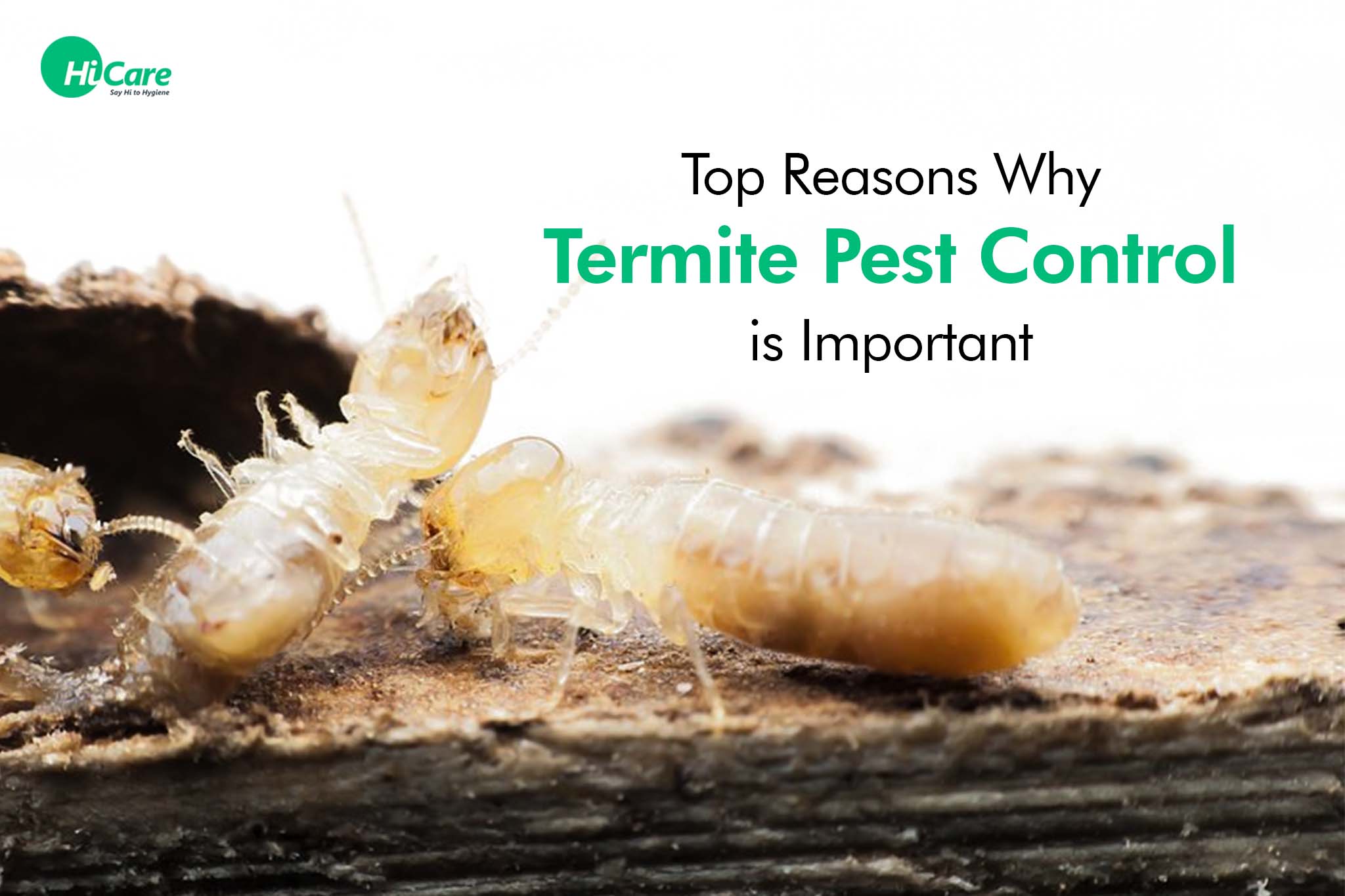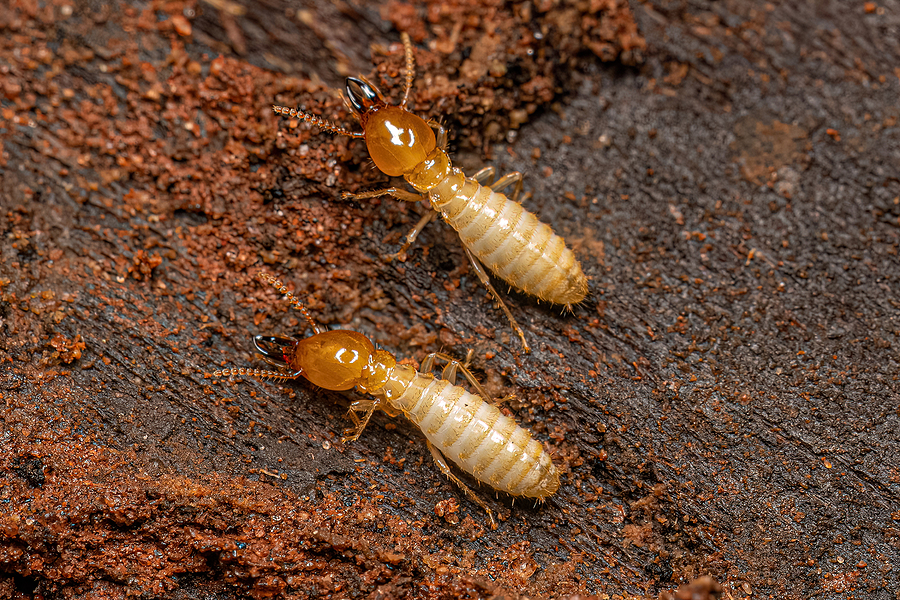Premier Termite Control Services: Make Sure Long-Term Protection for Your Residential property
Environmental Influence of Bug Control: Harmonizing Performance With Sustainability
The ecological impact of parasite control is an essential problem that needs a delicate equilibrium in between achieving efficiency in guaranteeing and handling parasites sustainability of our ecological communities. From the usage of hazardous chemicals that permeate into our dirt and water to the unintended effects on non-target varieties, the consequences of traditional bug control practices are significant.
Harmful Chemicals in Bug Control
The utilization of hazardous chemicals in parasite control postures substantial ecological and health dangers that call for mindful consideration and mitigation strategies. Herbicides, insecticides, and chemicals are frequently used to get rid of parasites, however their widespread application can result in unplanned consequences. These chemicals can infect soil, water sources, and the air, influencing not just the targeted bugs but likewise helpful bugs, wild animals, and human beings.

To attend to these threats, incorporated parasite administration (IPM) strategies are being advertised as an extra sustainable choice. IPM includes a combination of approaches such as organic control, environment manipulation, and the targeted use pesticides as a last option (ant control unionville nc). By embracing an all natural method to pest control, we can decrease the ecological and health and wellness impacts connected with harmful chemicals while properly managing pest populaces
Influence On Non-Target Variety
Thinking about the unexpected consequences of parasite control techniques, the influence on non-target varieties is a crucial element that calls for thorough examination. While parasite control measures aim to target specific pests, various other organisms in the environment might be unintentionally affected. Non-target types, consisting of beneficial bugs, birds, creatures, and even plants, can endure indirect or direct injury from pesticide applications or biological control approaches.
Pesticides developed to combat a particular bug pest might harm pollinators like or all-natural killers such as ladybugs. Biological control representatives, if not species-specific, can posture risks to unintentional targets, interrupting the ecological equilibrium.
To reduce the influence on non-target types, incorporated insect administration (IPM) approaches that highlight a holistic approach to pest control are suggested. These techniques focus on the usage of eco-friendly techniques, lessening injury to advantageous microorganisms while properly managing pest populations. Conducting extensive danger assessments and checking the outcomes of parasite control initiatives are crucial action in protecting non-target varieties and promoting general ecological community wellness.
Dirt and Water Contamination
Unintentional ecological consequences of parasite control approaches expand past impacting non-target types, with considerable ramifications for dirt and water contamination - termite control. Chemicals, herbicides, and chemical plant foods made use of in pest control can leach right into the soil and pollute groundwater, positioning a threat to both aquatic and terrestrial communities.
Water contamination is one more crucial problem connected with bug control techniques. Runoff from agricultural fields treated with pesticides can bring these chemicals right into nearby water bodies, impacting water organisms and water top quality. Pollutants in water sources can have far-reaching consequences, affecting not just aquatic life however additionally human health with the consumption of infected water or water organisms. To alleviate soil and water contamination from bug control tasks, incorporated bug management techniques that prioritize sustainability and minimize chemical inputs are crucial.
Air Pollution From Chemical Use
Direct exposure to airborne chemicals during agricultural applications postures a considerable problem for air pollution control steps. They can volatilize into the air and type unstable natural compounds (VOCs) and various other air-borne contaminants when pesticides are splashed onto plants - ant control. These chemicals can add to the development of ground-level ozone, a significant element of smog that can have harmful results on human health and wellness, plant performance, and overall air quality. In addition, pesticide drift, where pesticides are carried by the wind to unexpected areas, can lead to the contamination of nearby communities and water bodies.

Approaches for Sustainable Parasite Control
In the world of agricultural techniques, carrying out sustainable pest control approaches is critical for maintaining eco-friendly balance and protecting plant returns. Sustainable pest control stresses using eco friendly techniques to handle insect populations efficiently while reducing harm to non-target organisms and communities. Integrated Insect Management (IPM) is an extensively adopted method that incorporates biological, cultural, physical, and chemical control methods to accomplish lasting insect management solutions.
One trick strategy in sustainable insect control is advertising biodiversity within agroecosystems. By improving natural adversaries of pests, such as predators and parasitoids, farmers can lower the requirement for synthetic pesticides. Crop turning and diversification are also effective methods to interrupt pest life cycles and create less favorable conditions for insects to flourish. In addition, utilizing pest-resistant crop varieties and utilizing strategies like catch chopping can aid decrease insect stress without depending greatly on chemical treatments. Eventually, by integrating these lasting bug control approaches, farmers can achieve an equilibrium between pest monitoring efficiency and ecological stewardship.
Final Thought
To conclude, the ecological influence of insect control methods should be carefully thought about to balance efficiency with sustainability. Unsafe chemicals made use of in parasite control can cause dirt and water contamination, air pollution, and damage non-target types - ant control services. It is essential to carry out sustainable parasite control methods to reduce these negative results on the atmosphere Discover More Here and advertise a healthier ecological community for future generations
By embracing an alternative approach to pest control, we can minimize the environmental and wellness influences connected with dangerous chemicals while effectively handling pest populaces.

To alleviate the air pollution created by chemical use, it is vital to embrace integrated bug management approaches that prioritize the usage of non-chemical parasite control techniques, such as crop turning, natural killers, and immune plant varieties. Sustainable bug control emphasizes the use of environmentally friendly techniques to take care of pest populations effectively while minimizing damage to non-target microorganisms and communities. Integrated Insect Management (IPM) is a commonly adopted approach that combines biological, cultural, physical, and chemical control methods to achieve lasting insect monitoring remedies.